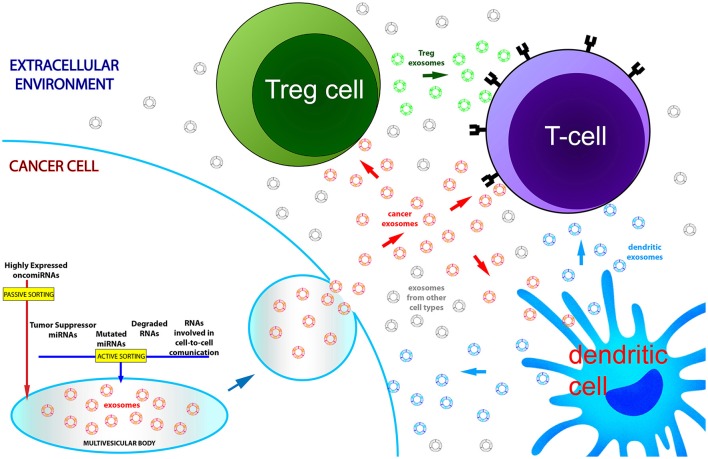Figure 1.
Exosomal RNA dysregulation partially reflects transcriptomic alterations of parental cancer cells. Active and passive sorting mechanisms are responsible for the native RNA quantitative asymmetry existing between cells and exosomes. In blood of cancer patients the nanovesicle population is the complex outcome of exosome production by multiple cell types: cancer cells and immune cells, through exosomal secretion, regulate their molecular homeostasis and communicate with each other during cancer development and progression. For these reasons, exosomal RNAs recovered from the systemic circulation only partially mirror the transcriptome of tumor cells.

